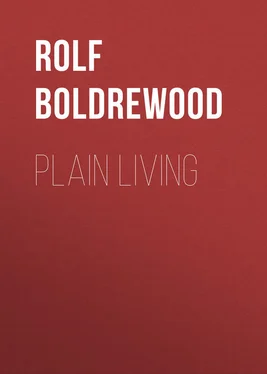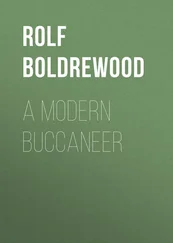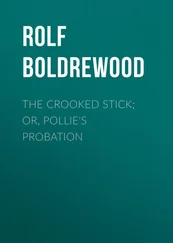Rolf Boldrewood - Plain Living
Здесь есть возможность читать онлайн «Rolf Boldrewood - Plain Living» — ознакомительный отрывок электронной книги совершенно бесплатно, а после прочтения отрывка купить полную версию. В некоторых случаях можно слушать аудио, скачать через торрент в формате fb2 и присутствует краткое содержание. Жанр: foreign_antique, foreign_prose, на английском языке. Описание произведения, (предисловие) а так же отзывы посетителей доступны на портале библиотеки ЛибКат.
- Название:Plain Living
- Автор:
- Жанр:
- Год:неизвестен
- ISBN:нет данных
- Рейтинг книги:4 / 5. Голосов: 1
-
Избранное:Добавить в избранное
- Отзывы:
-
Ваша оценка:
- 80
- 1
- 2
- 3
- 4
- 5
Plain Living: краткое содержание, описание и аннотация
Предлагаем к чтению аннотацию, описание, краткое содержание или предисловие (зависит от того, что написал сам автор книги «Plain Living»). Если вы не нашли необходимую информацию о книге — напишите в комментариях, мы постараемся отыскать её.
Plain Living — читать онлайн ознакомительный отрывок
Ниже представлен текст книги, разбитый по страницам. Система сохранения места последней прочитанной страницы, позволяет с удобством читать онлайн бесплатно книгу «Plain Living», без необходимости каждый раз заново искать на чём Вы остановились. Поставьте закладку, и сможете в любой момент перейти на страницу, на которой закончили чтение.
Интервал:
Закладка:
The boy sprang into the saddle, and, touching the old horse with his bare heels, started off on a canter over the river meadow, now comparatively cool in the growing twilight, towards a gravelly ford in which the mountain water still ran strong and clear.
With a sigh of relief, his father walked slowly forward through the garden gate and into the broad verandah of the cottage. Dropping listlessly into a great Cingalese cane chair, he looked round with an air of exhaustion and despondency. Below him was a well-grown orchard, with rows of fruit trees, the size and spreading foliage of which showed as well great age as the fertility of the soil. The murmuring sound of the river over the rocky shallows was plainly audible. Dark-shadowed eucalypti marked its winding course. As the wearied man lay motionless on the couch, the night air from the meadow played freshly cool against his temples. Stars arose of wondrous southern brilliancy. Dark blue and cloudless, the sky was undimmed. Strange cries came from the woods. A solemn hush fell over all things. It was an hour unspeakably calm and solemn – restful to the spirit after the long, burdensome, heated day.
“Ah, me!” sighed he; “how many an evening I have enjoyed from this very spot, at this self-same hour! Is it possible that we are to be driven out even from this loved retreat?”
A sweet girlish voice suddenly awoke him from his reverie, as one of the casement windows opened, and a slight, youthful figure stood at his shoulder.
“No wonder you are ashamed, you mean old daddy! Here have mother and I been exerting ourselves this hot afternoon to provide you with a superior entertainment, quite a club dinner in its way; attired ourselves, too, in the most attractive manner – look at me, for instance – and what is our reward? Why, instead of going to dress sensibly, you sit mooning here, and everything will be spoiled.”
“My darling! I am ready for my bath, I promise you; but I am tired, and perhaps a little discouraged. I have had a long day, and seen nothing to cheer me either.”
“Poor old father! So have we all; so has mother, so has Hubert, so have I and Linda. But it’s no use giving in, is it? Now walk off, there’s a dear! You’re not so very tired, unless your constitution has broken down all of a sudden. It takes a good day to knock you up, that I know. But we must all put a good face on it – mustn’t we? – till we’re quite sure that the battle’s lost. The Prussians may come up yet, you know!”
He drew the girl’s face over to his own, and kissed her fondly. Laura Stamford was indeed a daughter that a father might proudly look upon, that her mother might trust to be her best aid and comfort, loving in prosperity, lightsome of heart as the bird that sings at dawn, brave in adversity, and strong to suffer for those she loved.
All innocent she of the world’s hard ways, its lurid lights, its dread shadows. Proud, pure, unselfish in every thought and feeling, all the strength of her nature went out in fondness for those darlings of her heart, the inmates of that cherished home, wherein they had never as yet known sorrow. The fateful passion which makes or mars all womanhood was for her as yet in the future. What prayers had ascended to Heaven that her choice might be blessed, her happiness assured!
“This is the time for action, no more contemplation,” she said, with a mock heroic air; “the shower bath is filled; your evening clothes are ready in the dressing-room; mother is putting the last touch to her cap, Andiamo!”
When the family met at the tea-table – a comprehensive meal which, though not claiming the rank of dinner, furnished most of its requisites – Mr. Stamford owned that life wore a brighter prospect.
His wife and daughters in tasteful, though not ostentatious, evening attire would have graced a more brilliant entertainment. The boys, cool and fresh after their swim in the river, were happy and cheerful. Hubert, correctly attired, and much benefited by his bath and toilette, had done justice to his manifest good looks.
The well-cooked, neatly served meal, with the aid of a few glasses of sound Australian Reisling, was highly restorative. All these permissible palliatives tended to recreate tone and allay nervous depression. “The banker’s letter notwithstanding, things might not be so very bad,” the squatter thought. He would go to town. He might make other arrangements. It might even rain. If the worst came to the worst, he might be able to change his account. If things altered for the better, there was no use desponding. If, again, all were lost, it were better to confront fate boldly.
“Shall I pull through, after all?” said Mr. Stamford to himself, for the fiftieth time, as he looked over the morning papers at Batty’s Hotel, about a week after the occurrences lately referred to. In a mechanical way, his eyes and a subsection of his brain provided him with the information that, in spite of his misfortunes, the progress of Australian civilisation went on pretty much as usual. Floods in one colony, fires in another. The Messageries steamer Caledonien just in. The Carthage (P. and O.) just sailed with an aristocratic passenger list. Burglars cleverly captured. Larrikins difficult of extinction. The wheat crop fair, maize only so-so. These important items were registered in the brooding man’s duplex-acting brain after a fashion. But in one corner of that mysterious store-house, printing machine, signal-station, whatnot, one thought was steadily repeating itself with bell-like regularity. “What if the bank’s ultimatum is, no further advance, no further advance, no further ad – ”
After breakfast, sadly resolved, he wended his way to the palace of finance, with the potentate of which he was to undergo so momentous an interview.
Heart-sick and apprehensive as he was, he could not avoid noting with quick appreciation the sights and sounds of civilisation which pressed themselves on his senses as he walked in a leisurely manner towards the Bank of New Guinea. “What wonders and miracles daily pass before one’s eyes in a city,” he said to himself, “when one has been as long away from town as I have! What a gallery of studies to a man, after a quiet bush life, is comprised in the everyday life of a large city! What processions of humanity – what light and colour! What models of art, strength, industry! What endless romances in the faces of the very men and women that pass and repass so ceaselessly! Strange and how wonderful is all this! Glorious, too, the ocean breath that fans the pale faces of the city dwellers! What would I not give for a month’s leisure and a quiet heart in which to enjoy it all!”
The solemn chime of a turret clock struck ten. It aroused Stamford to a sense of the beginning of the commercial day, and his urgent necessity to face the enemy, whose outposts were so dangerously near his fortress.
The ponderously ornate outer door of the Bank of New Guinea had but just swung open as he passed in, preceding but by a second a portly, silk-coated personage, apparently equally anxious for an early interview. He looked disappointed as he saw Stamford make his way to the manager’s room.
For one moment he hesitated, then said: “If your business is not important, sir, perhaps you won’t mind my going in first?”
“I’m sorry to say it is important,” he replied, with his customary frankness; “but I will promise you not to take up a minute more of Mr. Merton’s valuable time than I can help.”
The capitalist bowed gravely as Harold Stamford passed into the fateful reception-room, of which the very air seemed to him to be full of impalpable tragedies.
The manager’s manner was pleasant and gentlemanlike. The weather, the state of the country, and the political situation were glanced at conversationally. There was no appearance of haste to approach the purely financial topic which lay so near the thoughts of both. Then the visitor took the initiative.
Читать дальшеИнтервал:
Закладка:
Похожие книги на «Plain Living»
Представляем Вашему вниманию похожие книги на «Plain Living» списком для выбора. Мы отобрали схожую по названию и смыслу литературу в надежде предоставить читателям больше вариантов отыскать новые, интересные, ещё непрочитанные произведения.
Обсуждение, отзывы о книге «Plain Living» и просто собственные мнения читателей. Оставьте ваши комментарии, напишите, что Вы думаете о произведении, его смысле или главных героях. Укажите что конкретно понравилось, а что нет, и почему Вы так считаете.












